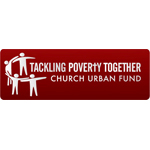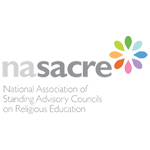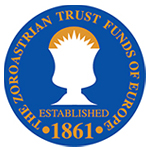Young Voices event
The information on this page and its sub-sections was prepared as part of an IFN event called Young Voices, Young Agents for Change. Held in 2014, the event brought together practitioners involved with inter faith projects run by, for and with young people.
Further resources for young people and about young people's involvement in inter faith activity can be found in our publications section.
An ever more diverse world
We live in a world in which there is increasing diversity of religious – and cultural – backgrounds. There are, of course, some areas where that may not seem to be so much the case but even where there is relatively little population mix we encounter people of many different backgrounds through daily engagement with media of various kinds. This diversity means that from the youngest age most of us are brought face to face with different world views and different sources of ethical judgement and action.
Growth in inter faith engagement among young people
Over the last ten years, there has been a significant increase in inter faith learning and other activity run by, with and for young people, and a number of initiatives with this as their special focus.
Profiling good practice and increasing involvement of young people in inter faith activity
There has, to date, been little opportunity for sharing of good practice or discussion about how to build on this growth. So the Inter Faith Network for the UK held an event for this purpose on 13 November 2014 called Young Voices, Young Agents for Change which brought together over 80 participants from 35 organisations working in this field. A full list of participating organisations can be found below.
The event built on IFN’s past experience of working to encourage the involvement of young people in inter faith activity and education and drew on the expertise and good practice of IFN’s member bodies and other organisations. It aimed to:
- profile some of the excellent inter faith youth activity that is already happening and stimulate more;
- give practitioners a chance to share good practice and to discuss ways to encourage more organisations and individuals to become involved; and
- open the door to further cooperative working which will benefit young people in local communities and also in schools, and institutions of Further Education and Higher Education.
Participation
The event was shaped to bring together a mix of practitioners from different contexts such as:
- National inter faith bodies with youth programmes
- Local inter faith group youth initiatives
- Community focused national faith based initiatives with an inter faith dimension
- Religious Education and schools related bodies which contribute to pupils’ inter faith learning and development of skills for dialogue and shared citizenship
- Further and Higher Education bodies, including students, chaplaincy and policy bodies at national level
- National youth organisations which have developed programmes of work for young people to engage with religion and belief issues through both dialogue and cooperative social projects
- Cultural initiatives which have had a youth inter faith dimension
- Relevant national initiatives linked to Government (such as National Citizen Service)
Invitees were selected with the twin aims of ensuring this diverse range of types of body and keeping the meeting compact enough to enable in-depth conversation and sharing of good practice and discussion. Many were adult professionals or committed volunteers working for the kinds of organisation listed above. But the day was about inter faith interaction between young people and, as would be expected, had a number of young presenters and other participants.
The opening presentation from IFN’s Director, Harriet Crabtree, explains more about the reasons for inclusion of the different strands and the very important contribution that each makes to developing inter faith activity with and for young people.
There are many other youth initiatives with an inter faith dimension – particularly at local level in different nations of the UK – and IFN hopes that the day’s event may inspire even wider networking and learning at every level.
Supporters
The day was supported by:
Bodies which participated in the day
A number of different kinds of organisation took part in the event, from those whose entire focus is encouraging engagement between young people of different faiths and beliefs to organisations where this is only one part of a wider set of programmes. These include inter faith initiatives where projects with young people are a part of its work and also youth organisations for which inter faith projects or programmes are a part of their wider work. There are also a number of organisations whose focus is Religious Education in schools, of which inter faith engagement and understanding forms a crucial part.
Each organisation listed below is accompanied by a link to its website (where possible), and the list is being expanded to include a short description of the work of each organisation.
3FF (the Three Faiths Forum)
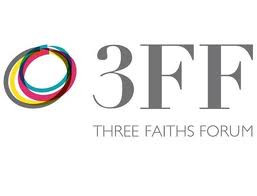 3FF has worked to build good relations between people of different faiths, beliefs and cultures for nearly twenty years. 3FF creates safe spaces in schools, universities, places of work and worship and the wider community where people can engage with questions of belief and identity and meet people different from themselves.
3FF has worked to build good relations between people of different faiths, beliefs and cultures for nearly twenty years. 3FF creates safe spaces in schools, universities, places of work and worship and the wider community where people can engage with questions of belief and identity and meet people different from themselves.
The organisation’s programmes enable people from different backgrounds – both religious and non-religious – to learn from each other and work together for the good of everyone.
3FF’s Schools programmes help young people explore faith and belief as they are actually lived by people today. Its award-winning education workshops and school linking programme enable students to approach questions of identity sensitively and effectively. Each year 3FF works with over 6,000 young people from across the UK.
ParliaMentors, 3FF’s UN award-winning leadership programme, brings together university students from different faith and belief backgrounds to create positive social change while being mentored by MPs. Now in its 9th year and with over 300 alumni, the programme creates a diverse network of leaders capable of bridging cultural divides and acting for change in their communities, in their careers and in the political arena.
Links
Resources: http://www.3ff.org.uk/resources/
For teachers: http://www.3ff.org.uk/schools/
For university students: http://www.3ff.org.uk/parliamentors/
Art Beyond Belief
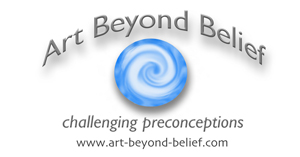 During the Sacred spaces project, we worked with students from Eton College and St. Joseph’s RC and Upton Court Grammar Schools in Slough, examining what identifies a space as sacred. Such spaces can be physical places, but they can also be times, objects or states of mind. Students recorded their explorations of their Sacred spaces through interviews, music and visuals. Sacred spaces is available as collection of five individual DVDs.
During the Sacred spaces project, we worked with students from Eton College and St. Joseph’s RC and Upton Court Grammar Schools in Slough, examining what identifies a space as sacred. Such spaces can be physical places, but they can also be times, objects or states of mind. Students recorded their explorations of their Sacred spaces through interviews, music and visuals. Sacred spaces is available as collection of five individual DVDs.
For the Who Am I? project we worked with students from Upton Court Grammar School to explore how they see religious identity. The idea was based on a talk given by Dr Eleanor Nesbitt of Warwick University, and the group discussions that followed. The resulting two-DVD set is arranged in chapters according to theme and includes a quick guide and an education guide
Following on from Who Am I? we are currently working on a programme in Slough schools called Why Do I? Students examine the entrenched ways of thinking that lead to prejudice and misconception and create barriers to understanding, and explore how these can also be the starting point for forgiveness, reconciliation and hope for the future. The Who Am I? DVD will be available later in 2015.
Links
Balaji Temple Youth Project
 The Sri Balaji Temple in Sandwell is a major Hindu temple with an active programme of work with young people. Young people play an active role in developing and leading the programme, together with a leader from the older adult congregation.
The Sri Balaji Temple in Sandwell is a major Hindu temple with an active programme of work with young people. Young people play an active role in developing and leading the programme, together with a leader from the older adult congregation.
The programme includes inter faith activities which enable them to learn about other faiths, including in very practical ways such as performing sewa (service) in inter faith contexts. Sewa Day and Inter Faith Week provide opportunities for some of the activities and the youth summer and winter camps are a context for a number of the projects. However, the temple has an ongoing year round commitment to youth inter faith engagement, mirroring a similar commitment on the part of the temple overall.
Links
http://www.venkateswara.org.uk/Balaji-Youth
Bolton Inter Faith Council
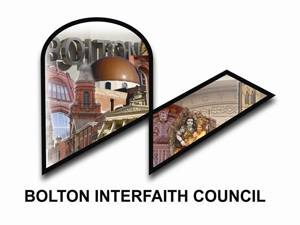 The Bolton Interfaith Council recognises the value of working and engaging with young people. Young people can make a tremendous contribution towards a peaceful and harmonious society. The Bolton Inter Faith Youth Ambassadors project is one of the ways we work with young people. Started over 6 years ago, with a programme developed by its members, it is supported by volunteers led by the Strategic Officer. The group currently consists of girls from various faiths in Bolton. It meets weekly and aims to give members an opportunity to work with all faiths, get involved in wider community events through dance, drama, public speaking, organising charity events, supporting community groups and much more.
The Bolton Interfaith Council recognises the value of working and engaging with young people. Young people can make a tremendous contribution towards a peaceful and harmonious society. The Bolton Inter Faith Youth Ambassadors project is one of the ways we work with young people. Started over 6 years ago, with a programme developed by its members, it is supported by volunteers led by the Strategic Officer. The group currently consists of girls from various faiths in Bolton. It meets weekly and aims to give members an opportunity to work with all faiths, get involved in wider community events through dance, drama, public speaking, organising charity events, supporting community groups and much more.
Links
http://www.boltoninterfaithcouncil.org.uk/18.html
Bradford Inter Faith Education Centre
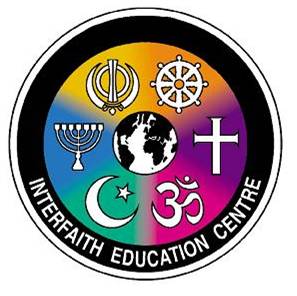 Bradford Interfaith Education Centre (IEC) is part of the City of Bradford MDC Directorate of Children’s Services and sits within the Diversity and Cohesion Service, working with its team to promote community cohesion. It was established as a resource centre in response to Bradford’s first multi-faith agreed syllabus for religious education in 1986. The IEC has a staff of trained faith tutors who are able to bring personal experience to religious education, visits to places of worship and collective worship. The IEC also houses a collection of modern resources and books to support RE, collective worship and SMSC development. Its staff team includes faith tutors and associates from the six major world faiths, an advisory teacher for RE and an administrative team dedicated to IEC visits, subscriptions and resources.Its objectives are educational and through these it makes an important contribution to inter faith understanding in Bradford.
Bradford Interfaith Education Centre (IEC) is part of the City of Bradford MDC Directorate of Children’s Services and sits within the Diversity and Cohesion Service, working with its team to promote community cohesion. It was established as a resource centre in response to Bradford’s first multi-faith agreed syllabus for religious education in 1986. The IEC has a staff of trained faith tutors who are able to bring personal experience to religious education, visits to places of worship and collective worship. The IEC also houses a collection of modern resources and books to support RE, collective worship and SMSC development. Its staff team includes faith tutors and associates from the six major world faiths, an advisory teacher for RE and an administrative team dedicated to IEC visits, subscriptions and resources.Its objectives are educational and through these it makes an important contribution to inter faith understanding in Bradford.
Links
https://bso.bradford.gov.uk/Schools/CMSPage.aspx?mid=443
Encompass Trust
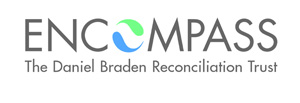 Encompass promotes community cohesion and tolerance between young people who are divided by cultures, religion and disadvantage and creates a network of young people who are moved away from potential routes to hatred and crime and towards more positive community involvement. Our international programmes (‘Journeys of Understanding’) and UK programmes (‘Same Difference’) are the first step through which young people can explore identity, culture, community and stereotype, building bridges with other communities that they are often taught to mistrust, or even hate, through entrenched community beliefs or by the media.
Encompass promotes community cohesion and tolerance between young people who are divided by cultures, religion and disadvantage and creates a network of young people who are moved away from potential routes to hatred and crime and towards more positive community involvement. Our international programmes (‘Journeys of Understanding’) and UK programmes (‘Same Difference’) are the first step through which young people can explore identity, culture, community and stereotype, building bridges with other communities that they are often taught to mistrust, or even hate, through entrenched community beliefs or by the media.
Our programmes have been comprehensively shown to result in increased confidence and self-esteem amongst participants, not only when dealing with other vastly different cultures and religions, but also in increased confidence to become involved in interfaith and inter-community projects and in society as a whole
Links
http://www.encompasstrust.org/
Faiths for Fun Day
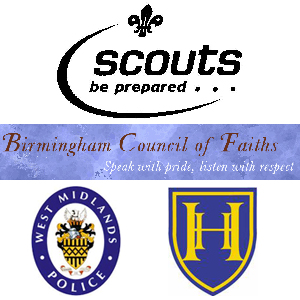 Birmingham Council of Faiths and Birmingham Scouts jointly arrange an annual Faiths for Fun event for children. This has increased in success and popularity during the last 7 years. The most recent event, held on Sun 1st March, brought 85 Scouts, Cubs, Beavers, Guides, Brownies, Rainbows and youngsters from Faith Groups .The event is normally attended by the President of Birmingham Scout Association; the Lord Mayor and often other dignitaries such as the Deputy Lord Lieutenant, as well as others such as Community Police Officers. Over the years the event has been sponsored by VSO, Near Neighbours, and most recently West Midlands Police Property Fund.
Birmingham Council of Faiths and Birmingham Scouts jointly arrange an annual Faiths for Fun event for children. This has increased in success and popularity during the last 7 years. The most recent event, held on Sun 1st March, brought 85 Scouts, Cubs, Beavers, Guides, Brownies, Rainbows and youngsters from Faith Groups .The event is normally attended by the President of Birmingham Scout Association; the Lord Mayor and often other dignitaries such as the Deputy Lord Lieutenant, as well as others such as Community Police Officers. Over the years the event has been sponsored by VSO, Near Neighbours, and most recently West Midlands Police Property Fund.
The fun starts on arrival when the children collect their goody bags and join in the ‘parachute game’. Then as part of multifaith teams they visit 7 faith ‘bases’ in turn to learn something about each faith through fun activities, Refreshments are provided at half time and finally there is dancing in the sports' hall. The event concludes with youngsters being presented with a certificate of participation.
A Youtube video about a past Faiths for Fun event is linked to below and gives a flavour of what the days are about.
Links
https://www.youtube.com/watch?v=RyfiNu7X68U
The Feast
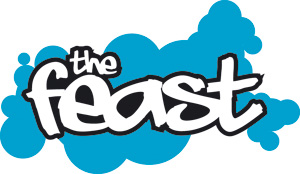 At the heart of The Feast is a desire to bring together teenagers of different faiths to build friendships, explore faith and change lives. We do this by inviting them to take part in encounter events where they can meet peers from other faiths. We work hard to make sure there are equal numbers of each participating faith group, and keep the groups small as we’ve found this works best.
At the heart of The Feast is a desire to bring together teenagers of different faiths to build friendships, explore faith and change lives. We do this by inviting them to take part in encounter events where they can meet peers from other faiths. We work hard to make sure there are equal numbers of each participating faith group, and keep the groups small as we’ve found this works best.
At each event, after breaking the ice, we set up the ground rules for their time together, called our Guidelines for Dialogue. This creates a safe space where the young people are willing to share their own honest thoughts and feelings. As a result we can facilitate open discussions between the young people, based on them speaking about their own faith and learning about the other. We believe that acknowledging both similarities and differences is vital if we are to be honest about our faiths and be equipped to deal with disagreements.
We encourage young people to take the lessons learned from The Feast into their everyday lives. We are proud to see this diverse group of young people making such positive change in their families, schools and communities.
Links
Guidelines for Dialogue: http://www.thefeast.org.uk/resources/guidelines-for-dialogue/
Event packs (resources): http://www.thefeast.org.uk/resources/event-packs/
Gateshead Interfaith Forum/ Gem Arts
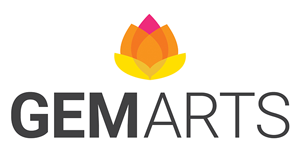 GemArts is a an arts development organisation based in the North East of England. It produces and programmes culturally diverse arts, creating and developing concerts, events, festivals, and workshops with regional, national and international artists. It believes the arts enrich the lives of individuals and communities through celebrating shared cultural diversity – raising aspirations, building stronger communities and breaking down barriers. Through its work, it seeks to increase equality of opportunity for everyone to engage with culturally diverse arts - as producers, participants and audiences. It works with young people of many different faith and cultural backgrounds through schools, community groups and other routes and it has a close working relationship with the Gateshead Inter Faith Forum.
GemArts is a an arts development organisation based in the North East of England. It produces and programmes culturally diverse arts, creating and developing concerts, events, festivals, and workshops with regional, national and international artists. It believes the arts enrich the lives of individuals and communities through celebrating shared cultural diversity – raising aspirations, building stronger communities and breaking down barriers. Through its work, it seeks to increase equality of opportunity for everyone to engage with culturally diverse arts - as producers, participants and audiences. It works with young people of many different faith and cultural backgrounds through schools, community groups and other routes and it has a close working relationship with the Gateshead Inter Faith Forum.
Links
http://gemarts.org/projects/111/gateshead-interfaith-forum-project
Girlguiding
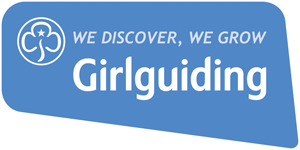 Girlguiding is the leading charity for girls and young women in the UK. It aims to give girls and young women a space where they can be themselves, have fun, build friendships, gain valuable life skills and make a positive difference to their lives and their communities.
Girlguiding is the leading charity for girls and young women in the UK. It aims to give girls and young women a space where they can be themselves, have fun, build friendships, gain valuable life skills and make a positive difference to their lives and their communities.
Links
http://www.girlguiding.org.uk/home.aspx
Inter Faith Youth Trust
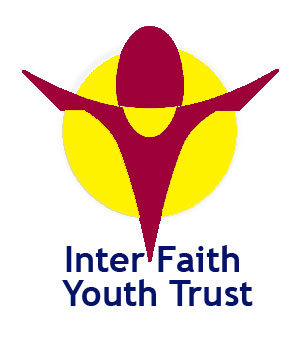 The Inter Faith Youth Trust (Alma Royalton-Kisch Trust) is the only UK charitable trust solely to fund inter faith projects for young people.
The Inter Faith Youth Trust (Alma Royalton-Kisch Trust) is the only UK charitable trust solely to fund inter faith projects for young people.
The Trust was established to promote the education of children and young people about the religions of the world and funds projects that bring together young people of different faiths to improve collaboration and understanding. In recent years it has had a fast track small grants programme for events/activities linked to Inter Faith Week for projects taking place in and around Inter Faith Week in November which involve young people of different faiths or provide learning about different faiths and beliefs.
Links
http://www.ifyouthtrust.org.uk/
Interfaith Scotland
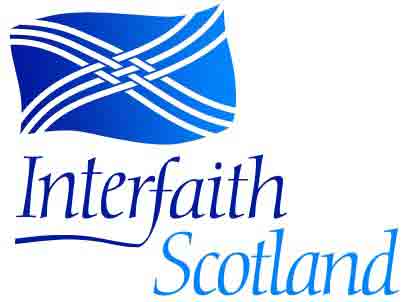 Interfaith Scotland runs a variety of events for young people, including national youth conferences, interfaith workshops in schools, visiting places of worship and attending annual away days and overnight retreats.
Interfaith Scotland runs a variety of events for young people, including national youth conferences, interfaith workshops in schools, visiting places of worship and attending annual away days and overnight retreats.
Interfaith Scotland has a team of young volunteers from different faith communities in Scotland who assist in delivering classes, assemblies and ‘interfaith days’ in primary and secondary schools.
Volunteers share about their faith and answer questions from pupils about what their faith means to them. This has proved to be an excellent way to break down the negative stereotypes that some young people may have about ‘religious’ people.
Interfaith Scotland also produces resources/ materials for schools, youth and community groups, including classes, workshops, assemblies, talks and videos on interfaith themes.
Interfaith Scotland organises youth retreats and away days to places of religious significance. Previous retreats include an Interfaith Week on Iona, staying with the Iona Community and a weekend to Holy Isle at the Centre for World Peace and Health, established by the Samye Ling Tibetan Buddhist Centre.
Interfaith Scotland has run seven national youth conferences with help and support from its youth volunteers. The volunteers have been fully involved in choosing a theme for each conference, assisting in creating a programme and in the delivery of the event. Previous themes they have chosen include ‘Service Above Self’ and ‘From Conflict to Cooperation.’
Links
Main: http://www.interfaithscotland.org/
Resources: http://www.interfaithscotland.org/resources
Activities with young people: http://www.interfaithscotland.org/our-activities/young-people/
Jewish Lads and Girls Brigade
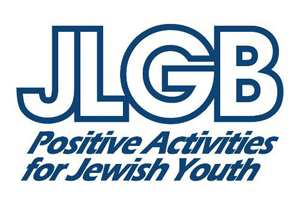 The JLGB trains and develops young people of the Jewish faith to reach their potential through active citizenship, within both the Jewish and wider community, empowering them to become future leaders of tomorrow. Through a diverse range of experiences and activities it seeks to enrich their lives through its local, regional and national framework. The JLGB removes barriers to participation by providing positive activities within a fun, friendly, safe and structured environment, that meet the religious and cultural needs of the Jewish community. It encourages friendship through achievement, recognition and personal development programmes, which prepare and enable young Jewish people to develop the essential life skills needed to help their transition from young person to adult life.Central to the ethos of the JLGB is active citizenship and giving back to society. The JLGB encourages Jewish young people’s involvement in volunteering, inter-faith and intergenerational projects that have a positive impact in both the Jewish and wider communities.
The JLGB trains and develops young people of the Jewish faith to reach their potential through active citizenship, within both the Jewish and wider community, empowering them to become future leaders of tomorrow. Through a diverse range of experiences and activities it seeks to enrich their lives through its local, regional and national framework. The JLGB removes barriers to participation by providing positive activities within a fun, friendly, safe and structured environment, that meet the religious and cultural needs of the Jewish community. It encourages friendship through achievement, recognition and personal development programmes, which prepare and enable young Jewish people to develop the essential life skills needed to help their transition from young person to adult life.Central to the ethos of the JLGB is active citizenship and giving back to society. The JLGB encourages Jewish young people’s involvement in volunteering, inter-faith and intergenerational projects that have a positive impact in both the Jewish and wider communities.
Links
Joseph Interfaith Foundation
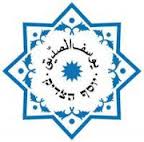 The Joseph Interfaith Foundation is a national joint Muslim-Jewish interfaith charity.
The Joseph Interfaith Foundation is a national joint Muslim-Jewish interfaith charity.
We are committed to fostering engagement through constructive and sustained dialogue, effective discussion, and realistic social interaction between Muslim and Jewish communities in Britain. We also promote a deeper understanding of both faiths among the general public.
A major focus of our work is university students. Our initiative, Annual University Seminars is a unique, proactive project which aims towards reducing and removing prejudice, misinformation and misunderstanding between Jewish and Muslim students. We believe that genuine social engagement can only take place when both sides learn and acknowledge the concerns of their interlocutor based on mutual respect and search for the truth. The seminars are held in association with Islamic and Jewish Student Societies
We believe “interfaith” should not be limited to the lowest common denominator. Therefore, the seminars address the most immediate and thorny issues affecting both Jewish and Muslim students. Previous topics have included “Freedom of Expression”, “Hate Speech”, “Freedom of Religion”.
Students on paid/unpaid internships with JIF, gain professional skills for interfaith negotiations, understanding of Muslim-Jewish interfaith relations, professional skills for speaking and chairing seminars and discussions; and, where relevant, contribution to PhD research on Muslim-Jewish Relations.
Links
http://www.josephinterfaithfoundation.org/
Maimonides Interfaith Foundation
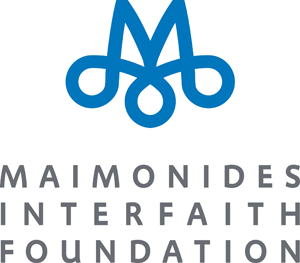 The Maimonides Interfaith Foundation is a dynamic influential international charity promoting understanding and respect between people from the three Abrahamic faiths through the power of creativity, intercultural dialogue and education. Among its supporters are some of the world's most highly respected religious leaders and other prominent figures.
The Maimonides Interfaith Foundation is a dynamic influential international charity promoting understanding and respect between people from the three Abrahamic faiths through the power of creativity, intercultural dialogue and education. Among its supporters are some of the world's most highly respected religious leaders and other prominent figures.
At a wider level, the Foundation also helps drive discussions around the key issues and challenges relating to the role of faith, religion and pluralism in the world today. It does this by creating art and cultural events that connect people, organising significant debates and by developing exciting educational initiatives like Interfaith Explorers.
Interfaith Explorers is a free online learning resource supported by UNESCO. It is designed to add value to religious education, PSHE and citizenship teaching and offers a stimulating six-week cross curriculum programme of study for primary school teachers to use with key stage 2 and 3 pupils. Interfaith Explorers helps children around the world respect religious and cultural diversity.
Links
http://www.maimonides-foundation.org/
http://interfaithexplorers.com/
Mitzvah Day
 Mitzvah Day Active engages young adults (aged 22-35) in hands-on social action projects with a charity or cause of interest to them. Mitzvah Day sets up the projects and identifies young adults to turn up on the day with a group of willing friends. The project is an ideal way to create the initial spark of engagement with the community. The projects are fun, social and meaningful so groups leave feeling as though they have made a real difference, with options to come back in the future.
Mitzvah Day Active engages young adults (aged 22-35) in hands-on social action projects with a charity or cause of interest to them. Mitzvah Day sets up the projects and identifies young adults to turn up on the day with a group of willing friends. The project is an ideal way to create the initial spark of engagement with the community. The projects are fun, social and meaningful so groups leave feeling as though they have made a real difference, with options to come back in the future.
Mitzvah Day Active Inter Faith uses this model to bring together groups of young adults from different faiths. By participating in a hands-on social action project together, conversation will begin and any barriers will begin to break down. Mitzvah Day will facilitate these projects and connect appropriate groups together. We believe that inter faith social action is a successful method of developing relationships between peoples and developing stronger local communities.
Mitzvah Day is a day of volunteering and social action led by the Jewish community.
Links
http://www.mitzvahday.org.uk/project-categories/categoryevents/38-mitzvah-day-active.html
National Association of SACREs
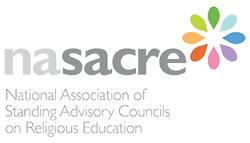 The 1988 Education Act both formalised a many-faiths approach to Religious Education in state schools, and also established a statutory body in each Local Authority, the SACRE (Standing Advisory Council on RE), to oversee the delivery of RE in the LA’s schools. NASACRE, the National Association of SACREs, exists to support and promote the work of SACREs, and hence to work with SACREs for the highest quality of RE for the millions of young people passing through our state schools.
The 1988 Education Act both formalised a many-faiths approach to Religious Education in state schools, and also established a statutory body in each Local Authority, the SACRE (Standing Advisory Council on RE), to oversee the delivery of RE in the LA’s schools. NASACRE, the National Association of SACREs, exists to support and promote the work of SACREs, and hence to work with SACREs for the highest quality of RE for the millions of young people passing through our state schools.
Although the advent of ‘academies’ has loosened the legal framework in some contexts, in practice the work of SACREs and of NASACRE continues to be of wide relevance and impact. The many-faiths content of modern RE is designed to foster respect, tolerance, and acceptance of diversity, and to create an environment within which inter faith engagement may safely take place, and where highly sensitive issues may be explored together. In partnership with the Westhill Foundation, NASACRE offers annual Awards to SACREs for projects with pupils which generate compelling learning experiences engaging with religious diversity. These Awards have stimulated many creative and inspirational developments. Accounts of successful Award projects may be found on the NASACRE and Westhill websites.
Links
National Association of Teachers of RE
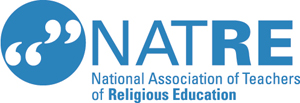
The National Association of Teachers of Religious Education (NATRE) is the subject teacher association for RE professionals and has thousands of members nationwide. NATRE works to enable teachers to be part of a wider RE community, allowing them to share best practice, access quality resources and have opportunities for professional development in order to deliver the best RE possible to pupils. It supports over 200 local groups of RE teachers across the country – these allow colleagues to meet with RE teachers from other schools on a regular basis, network and share good practice.
NATRE provides a representative voice for RE and RE professionals at a national level. The association has been instrumental in establishing an APPG (All Party Parliamentary Group) for RE and works with politicians for the benefit of Religious Education. Public views about RE are important, so NATRE works with the media in order to change perceptions of Religious Education and give it a strong image.
NATRE is involved with many projects, including running the annual Spirited Arts 'Art in Heaven' competition which encourages RE pupils to submit creative entries on one of five themes. The entries may use any creative medium, and past entries have included drawings, paintings, sculptures, videos and others.
Links
http://www.natre.org.uk
http://www.natre.org.uk/about-natre/projects/current-ongoing-projects/
http://www.natre.org.uk/about-natre/projects/spirited-arts/introduction/
National Citizen Service
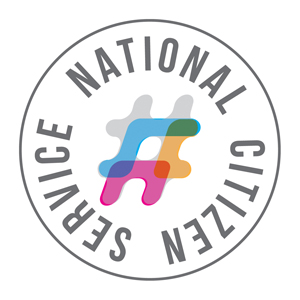 NCS is an opportunity for young people, aged 15 – 17 and living in England and Northern Ireland, to make extraordinary friendships, learn the skills they don’t teach you in class and create unforgettable memories.
NCS is an opportunity for young people, aged 15 – 17 and living in England and Northern Ireland, to make extraordinary friendships, learn the skills they don’t teach you in class and create unforgettable memories.
NCS is a unique 3-4 week programme of fun and discovery. After an initial 2-3 weeks of full-time residential team activities (in groups of no more than 15 young people), participants spend between at least 30 hours committed to a social action project that benefits both young people and their communities.
Our participants build skills for work and life, whilst taking on team challenges, spending time away from home, making new friends, and contributing to their community.
Links
National Council for Voluntary Youth Services
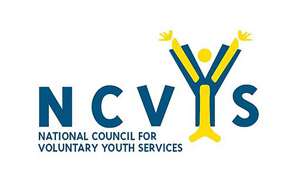 The National Council for Voluntary Youth Services is a diverse and growing network of over 260 national organisations and regional and local networks that work with and for young people.Through its work it helps such organisations to build their capacity to deliver quality youth work and to build thriving communities and sustainable networks that empower all young people to achieve their potential. It is currently working with a network of faith based organisations, mainly focused on training issues, and is exploring possibilities for greater engagement between faith based voluntary bodies and secular youth organisations as part of helping young people develop skills for engagement in our diverse society.
The National Council for Voluntary Youth Services is a diverse and growing network of over 260 national organisations and regional and local networks that work with and for young people.Through its work it helps such organisations to build their capacity to deliver quality youth work and to build thriving communities and sustainable networks that empower all young people to achieve their potential. It is currently working with a network of faith based organisations, mainly focused on training issues, and is exploring possibilities for greater engagement between faith based voluntary bodies and secular youth organisations as part of helping young people develop skills for engagement in our diverse society.
Links
National Council of Faiths and Beliefs in Further Education
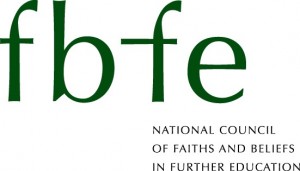 The National Council for Faiths and Beliefs in Further Education (FbFE) is a national independent inter-faith charity working with the learning and skills sector, faith and local communities and national and local faith/belief based groups to support the further education sector to engage positively with faith and belief.FbFE is a membership organisation, offering a range of services to those working in the further education sector, including access to resources, training, consultancy and other services.
The National Council for Faiths and Beliefs in Further Education (FbFE) is a national independent inter-faith charity working with the learning and skills sector, faith and local communities and national and local faith/belief based groups to support the further education sector to engage positively with faith and belief.FbFE is a membership organisation, offering a range of services to those working in the further education sector, including access to resources, training, consultancy and other services.
Links
National Union of Students
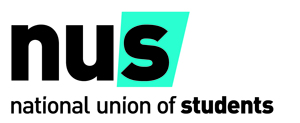 The Campus Cohesion, Faith and Belief project at NUS works on the understanding that faith and Belief is an integral part of many students’ identity. Supporting students of faith and belief and meeting their diverse needs has been an increasingly important area of work for both students’ unions and institutions.
The Campus Cohesion, Faith and Belief project at NUS works on the understanding that faith and Belief is an integral part of many students’ identity. Supporting students of faith and belief and meeting their diverse needs has been an increasingly important area of work for both students’ unions and institutions.
The NUS Campus Cohesion, Faith and Belief project seeks to support students’ unions to:
- Increase interaction, understanding and learning amongst students and staff about the role of religion and belief in students’ lives.
- Understand the risks posed by some external speakers and how to mitigate against these risks
- Respond to tensions between different student faith groups
- Support student faith groups to negotiate for improved services and gain acknowledgement from their institutions of their specific needs (particularly in relation to changing equality legislation)
- Increase interaction, understanding and learning amongst students and staff about the role of religion and belief in students’ lives.
We provide this support in a number of ways including:
- Providing grants of up to £1000 to students’ unions and student societies for activities and social action projects that bring together students of different faiths and beliefs
- Tailored resources
- Training
- Conduct research into areas of student life which may be affected by faith and belief
Links
http://beta.nusconnect.org.uk/strong-students-unions/faith-and-belief
Near Neighbours
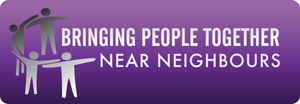 The idea behind Near Neighbours is to bring people together who are near neighbours in communities that are religiously and ethnically diverse, so that they can get to know each other better, build relationships of trust and collaborate together on initiatives that improve the local community they live in.
The idea behind Near Neighbours is to bring people together who are near neighbours in communities that are religiously and ethnically diverse, so that they can get to know each other better, build relationships of trust and collaborate together on initiatives that improve the local community they live in.
The programme works in a number of key locations across England. We are present in the northern towns of Bury, Rochdale, Oldham and Burnley; Leeds, Bradford and Dewsbury. In the midlands we are working in Birmingham, Wolverhampton, Sandwell, Walsall and Dudley; Leicester and Nottingham. In the south we operate in Luton and across most of London.
Each of these locations is covered by one of our local hubs. These hubs act as a focal point for much of the work of the programme. We have a coordinator based at each who is connecting with local projects and developing the work of the programme.
This is supported by a small grants fund, providing seed capital for local groups and organisations who are working to bring together neighbours, to develop relationships of diverse faiths and ethnicities, and also to improve their communities. This small grants fund has provided funding for a huge variety of work with young people, including sports, crafts, and training. In addition to this, Near Neighbours has worked in collaboration with the St Philip’s Centre and BCDD to deliver Catalyst, a dynamic and interactive young leaders programme which aims to build the confidence of, and make real the potential of young people, so that they can change their communities for the better.
Links
http://www.cuf.org.uk/how-we-help/near-neighbours
Nehemiah Foundation
 The Nehemiah Foundation is an organisation which helps deliver practical community-based regeneration at a neighbourhood level through practical training and support and developing and setting up initiatives that will help promote and sustain resilient neighbourhoods. Through involvement in helping deliver programmes such as Near Neighbours it gives opportunities to young people to develop skills in community work, including in inter faith contexts.
The Nehemiah Foundation is an organisation which helps deliver practical community-based regeneration at a neighbourhood level through practical training and support and developing and setting up initiatives that will help promote and sustain resilient neighbourhoods. Through involvement in helping deliver programmes such as Near Neighbours it gives opportunities to young people to develop skills in community work, including in inter faith contexts.
Links
http://www.nehemiahfoundation.co.uk/
Peace Mala
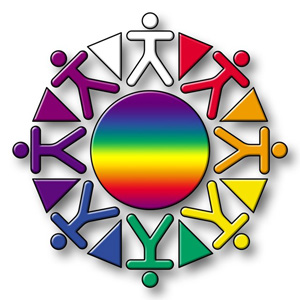 Peace Mala is an educational project for peace founded by Pam Evans, former Head of Religious Studies at Coedcae Comprehensive School in Llanelli. It was founded in the aftermath of 9/11 in response to the Islamaphobia and racial intolerance experienced by some of her students.
Peace Mala is an educational project for peace founded by Pam Evans, former Head of Religious Studies at Coedcae Comprehensive School in Llanelli. It was founded in the aftermath of 9/11 in response to the Islamaphobia and racial intolerance experienced by some of her students.
By using a symbolic double rainbow bracelet focusing on the ‘Golden Rule’ found in different faiths, “Treat others as you would like them to treat you”, the project promotes inter faith dialogue for peace and global citizenship. The project works to “cut through every type of prejudice” and celebrates what makes us different from each other.
Peace Mala Accreditation, which has won a number of awards, is open to schools, youth groups and community groups and provides a complete, effective and innovative answer to all the requirements of the Welsh Government's ESDGC directive (Education for Sustainable Development and Global Citizenship).
Links
Redbridge Ambassadors of Faith and Belief
 The Ambassadors of Faith and Belief (AFaBs) are 6th form students recruited from four secondary schools in the London Borough of Redbridge. The students are trained to give presentations of their faith/belief to primary classes. Each presentation is focused on the impact that their faith/belief has on the personal, family and community life of the student. The project seeks to bring the provision of Religious Education in primary schools “to life” by promoting interfaith and intrafaith encounter and dialogue.
The Ambassadors of Faith and Belief (AFaBs) are 6th form students recruited from four secondary schools in the London Borough of Redbridge. The students are trained to give presentations of their faith/belief to primary classes. Each presentation is focused on the impact that their faith/belief has on the personal, family and community life of the student. The project seeks to bring the provision of Religious Education in primary schools “to life” by promoting interfaith and intrafaith encounter and dialogue.
All primary teachers in the Redbridge are able to book an Ambassador visit through the project website www.redbridgeafab.org.uk. The project offers Ambassadors from a wide range of faith backgrounds as well as students from dual-faith families and non-religious beliefs (agnostic and atheist).
The origins of this project came from the needs of two groups in Redbridge:
- Primary schools wished for better access to good quality ‘RE speakers’ who could represent the wide diversity of faith within the local area and make learning more meaningful and relevant.
- Secondary schools identified a need for more Year 12/13 volunteering opportunities (to develop key skills and support/enhance university application personal statements).
The project has now been running for 4 years.
Links
Religions for Peace European Interfaith Youth Network
 Religions for Peace UK (RfPUK) is seeking to develop in the UK an RfPUK youth faith network. This is linked to the Religions for Peace - European Interfaith Youth Network (EIYN) which was founded in 2006 and which brings together 25 youth organisations and communities from different religions, facilitating multi religious cooperation and advancing common action for peace. Some non-religious organizations which facilitate inter-faith dialogue are involved. It has strong connections with RfP youth networks in Asia, Africa, the Middle East, North America, Latin America and the Caribbean.
Religions for Peace UK (RfPUK) is seeking to develop in the UK an RfPUK youth faith network. This is linked to the Religions for Peace - European Interfaith Youth Network (EIYN) which was founded in 2006 and which brings together 25 youth organisations and communities from different religions, facilitating multi religious cooperation and advancing common action for peace. Some non-religious organizations which facilitate inter-faith dialogue are involved. It has strong connections with RfP youth networks in Asia, Africa, the Middle East, North America, Latin America and the Caribbean.
Since 2006 EIYN has led two campaigns: a 2 year-long disarmament campaign Arms Down. Disarmament for Development and Restoring Dignity, Religious Youth Say No to Violence Against Women, and implemented numerous projects in the framework of those campaigns. EIYN will be launching its new campaign: Welcoming the Other in 2015. This initiative will address the rising hostility towards “the other”, and radicalization of youth across the globe. EIYN offers inter faith advocacy training and organizes annual thematic international youth summits. Learn more about what we do on our website: www.eiyn.eu and join our facebook page: www.facebook.com/rfp.eiyn & follow us on twitter: @rfpeiyn to learn about different religions and follow youth and interfaith news from all Europe and all the world!
Links
Website: www.eiyn.eu
Contact for UK youth network: secretary@religionsforpeace.org.uk
Facebook: www.facebook.com/rfp.eiyn
Twitter: @rfpeiyn
Religious Education Council of England and Wales
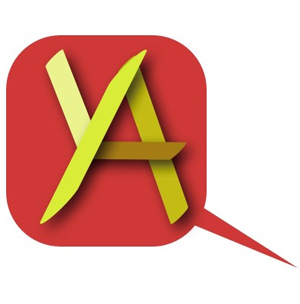 'RE helps you become an open minded individual with a good understanding of others' (REC Young Ambassador).
'RE helps you become an open minded individual with a good understanding of others' (REC Young Ambassador).
The RE Council of England and Wales has established Young Ambassador groups to help improve public understanding of religious education. Currently young people of various beliefs from eight schools across the country are working with their peers, teachers and the REC to promote a subject that they identify as being an effective contributor to positive community relations and inter-religious understanding.
At their annual conference in January one student explained, 'RE gives people the knowledge to challenge prejudice and stereotypes. It helps encourage cohesion and it celebrates diversity'.
They have presented evidence to this effect to an inquiry on behalf of the All Party Parliamentary Group on RE, to SACREs, NASACRE, universities and members of local authorities as well as the RE Council itself. They are given freedom to promote RE in the ways they choose and they have become highly skilled and experienced ambassadors for the subject.
Links
RE Council: http://religiouseducationcouncil.org.uk/
Young Ambassadors: http://religiouseducationcouncil.org.uk/young-ambassadors
Rowan Arts
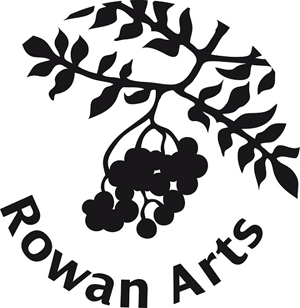 A Young Person’s Guide to Religion, produced by Rowan Arts, is a project that brought together 40 young people aged 11-25 to tell the story of four religions in Islington (Christianity, Hinduism, Islam and Judaism) and the heritage of other faiths and of humanism producing a website, a documentary film and an animation.
A Young Person’s Guide to Religion, produced by Rowan Arts, is a project that brought together 40 young people aged 11-25 to tell the story of four religions in Islington (Christianity, Hinduism, Islam and Judaism) and the heritage of other faiths and of humanism producing a website, a documentary film and an animation.
The group tell the story of the different faith groups: the history of how they came to be where they are (geographically and spiritually); their beliefs and practices; the heritage of different faith buildings using film, oral history, audio recording, photography and research. The themes explore ceremonies and ritual (birth, death and marriage), special objects; attitudes to poverty; sex; drugs and alcohol; war and conflict; and values and morals.
The project looks at the influence these religions have on north London society – how they are seen, and have been seen, by other religious and non-religious groups, the stereotypes different faiths may have, and the impact faiths have on social as well as physical, civil infrastructure. It looks at the buildings associated with different faith groups – including community buildings and places of worship – and how these were built, adapted and adopted to best suit the needs of different faith groups.
Links
http://www.rowanarts.net/
http://www.guidetoreligion.com/
St Ethelburga's Centre for Reconciliation and Peace
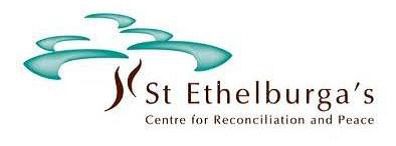 The St Ethelburga's Centre for Reconciliation and Peace exists to transform conflict and division into new relationships and peaceful communities. It does this:
The St Ethelburga's Centre for Reconciliation and Peace exists to transform conflict and division into new relationships and peaceful communities. It does this:
- by creating a unique space for dialogue and encounter;
- by offering training (including dialogue facilitation, conflict resilience, community reconciliation, conflict coaching and narrative based tools for community building);
- by offering direct support to communities experiencing conflict;
- by bringing people together through music and the arts.
Friends for Change is a programme targeted at young adults (18-36 years) which creates and nurtures friendships across faith identities, and provides opportunities for them to learn how other communities live and embody their faith or spiritual path.
Links
https://www.stethelburgas.org
https://www.stethelburgas.org/friends-change
Suffolk Inter-Faith Resource
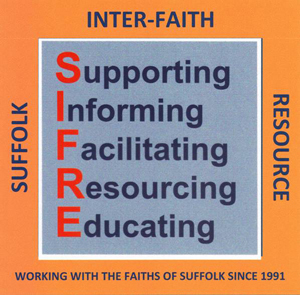 Suffolk Inter-Faith Resource is a voluntary charitable company which runs faith based seminars, meetings for people from the faiths and arranges informal gatherings. In conjunction with the East of England Faiths Agency it offers a range of educational services for schools and the voluntary and statutory sectors. It has developed the Diversity Game as a way of helping young people (and old) deepen their understanding of different religions, beliefs and cultures.
Suffolk Inter-Faith Resource is a voluntary charitable company which runs faith based seminars, meetings for people from the faiths and arranges informal gatherings. In conjunction with the East of England Faiths Agency it offers a range of educational services for schools and the voluntary and statutory sectors. It has developed the Diversity Game as a way of helping young people (and old) deepen their understanding of different religions, beliefs and cultures.
Links
http://www.sifre.org.uk/sifre_index.htm
http://www.sifre.org.uk/lib/diversity.htm
United Religions Initiative
 URI is a global grassroots inter faith network that cultivates peace and justice by engaging people to bridge religious and cultural differences and work together for the good of their communities and the world. It has a Young Leaders Program (YLP) which connects youth from diverse backgrounds to further the same aims. It also has a Youth Ambassadors Program which is is a voluntary fellowship for young adults around the world interested in developing their leadership and deepening their involvement in URI over the course of a year. Ambassadors are selected through an application process and receive focused support, mentorship, and a small seed grant for an original project. YLP training offers real world leadership development, with many participants meeting at residential youth camps around the world. Youth leaders are able to engage in interfaith dialogue, plan projects, and build knowledge and skills together. There are many opportunities to be of service. Youth leaders make change by implementing new projects, getting involved in their local community, and through global volunteering days.
URI is a global grassroots inter faith network that cultivates peace and justice by engaging people to bridge religious and cultural differences and work together for the good of their communities and the world. It has a Young Leaders Program (YLP) which connects youth from diverse backgrounds to further the same aims. It also has a Youth Ambassadors Program which is is a voluntary fellowship for young adults around the world interested in developing their leadership and deepening their involvement in URI over the course of a year. Ambassadors are selected through an application process and receive focused support, mentorship, and a small seed grant for an original project. YLP training offers real world leadership development, with many participants meeting at residential youth camps around the world. Youth leaders are able to engage in interfaith dialogue, plan projects, and build knowledge and skills together. There are many opportunities to be of service. Youth leaders make change by implementing new projects, getting involved in their local community, and through global volunteering days.
Links
Unity of Faiths Foundation
 The Unity of Faiths Foundation’s mission is to help ‘unite’ people of all communities irrespective of their religious belief, cultural or social background. It aims to help create a more stable, tolerant and cooperative future for all by promoting harmony and understanding between communities, drawing upon and celebrating the commonalities that unite people. It is developing a grass roots educational venture called Project Unity, aimed at giving opportunities to empower young people by providing them with a positive platform in dealing with what it sees as one of the most critical issues impacting on contemporary society – a lack of unity. Through a series of programmes and opportunities, young people will be given the chance to express, connect, engage and interact to develop their voice in building a more unified community, country and world. This project has commenced with schools work and sporting opportunities.
The Unity of Faiths Foundation’s mission is to help ‘unite’ people of all communities irrespective of their religious belief, cultural or social background. It aims to help create a more stable, tolerant and cooperative future for all by promoting harmony and understanding between communities, drawing upon and celebrating the commonalities that unite people. It is developing a grass roots educational venture called Project Unity, aimed at giving opportunities to empower young people by providing them with a positive platform in dealing with what it sees as one of the most critical issues impacting on contemporary society – a lack of unity. Through a series of programmes and opportunities, young people will be given the chance to express, connect, engage and interact to develop their voice in building a more unified community, country and world. This project has commenced with schools work and sporting opportunities.
Links
http://www.theunityoffaiths.org/
World Congress of Faiths
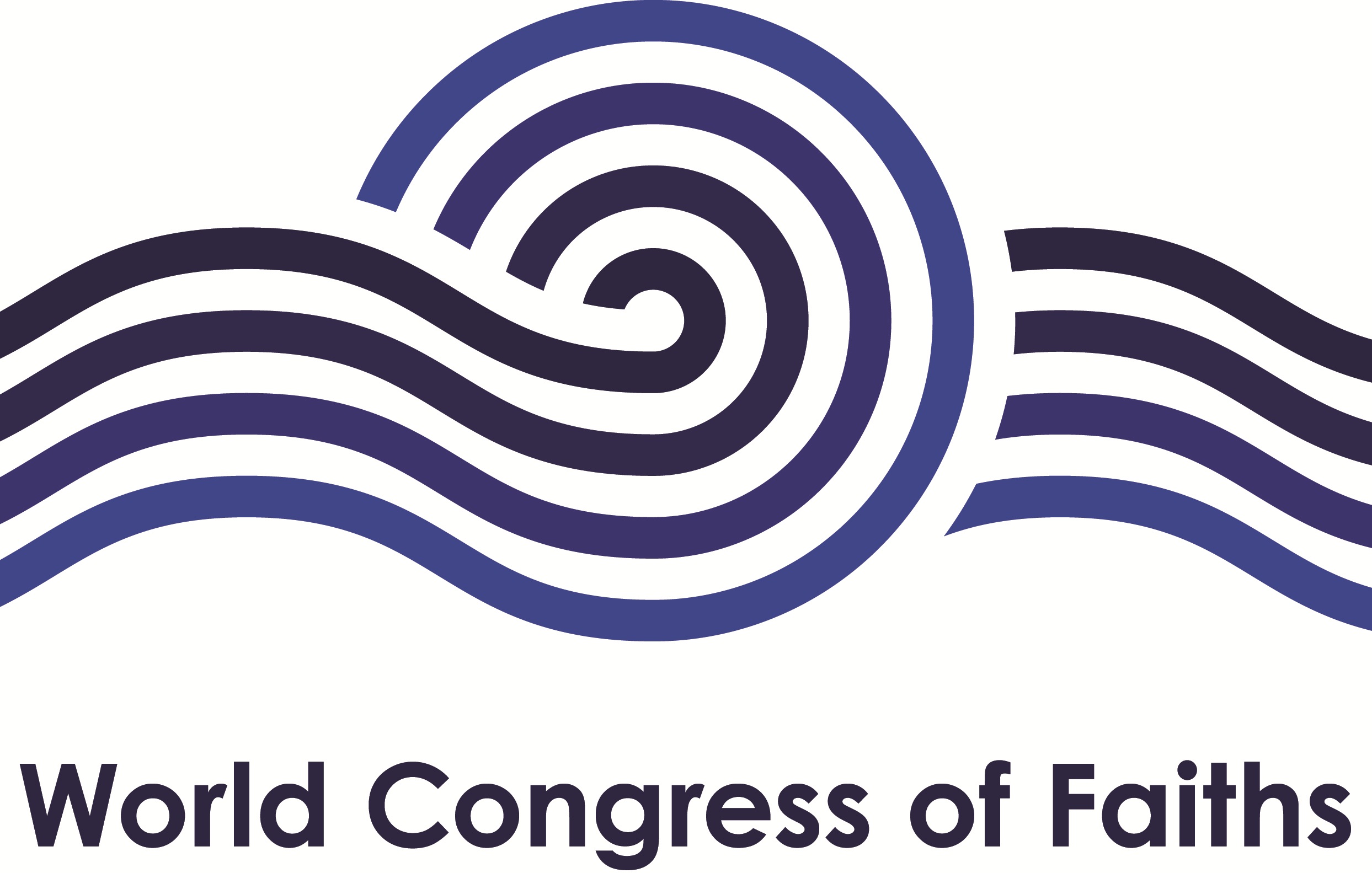 The World Congress of Faiths was established in 1936. It promotes fellowship – a deep spiritual connection and friendship – between individual followers of all faiths. It publishes Interreligious Insight, a leading journal on interfaith matters, and arranges a variety of conferences, meetings, retreats, visits and group travel to provide occasions to learn what others believe, what they think about life today and how they pray, meditate and worship. It has a general concern for, and interest in, teaching about religious and inter religious issues and spirituality in Institutions of Higher Education.
The World Congress of Faiths was established in 1936. It promotes fellowship – a deep spiritual connection and friendship – between individual followers of all faiths. It publishes Interreligious Insight, a leading journal on interfaith matters, and arranges a variety of conferences, meetings, retreats, visits and group travel to provide occasions to learn what others believe, what they think about life today and how they pray, meditate and worship. It has a general concern for, and interest in, teaching about religious and inter religious issues and spirituality in Institutions of Higher Education.
Links
Coming out of the event, this microsite carries contact details for the bodies which took part and some information about their work. IFN hopes that these links, together with the ‘key points’ from the day and the videos and plenary presentation transcripts may be a helpful resource for other organisations seeking to become involved in this important area of activity.
Report on the event
A report on the event can be downloaded here (PDF 2MB).



